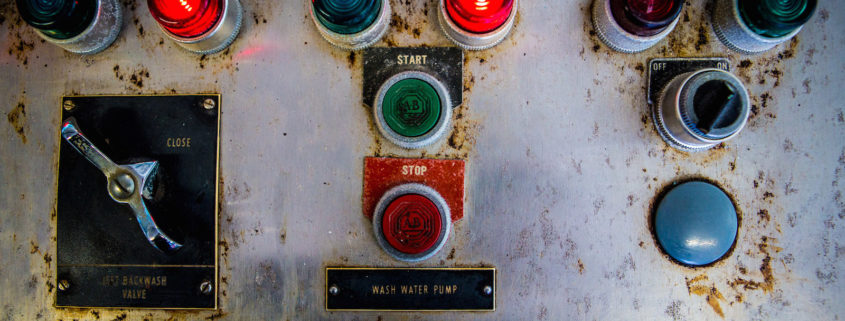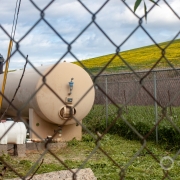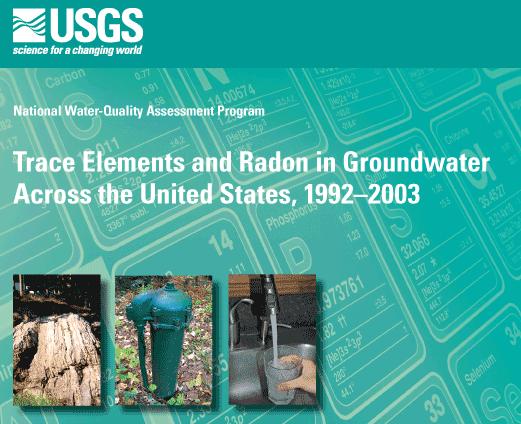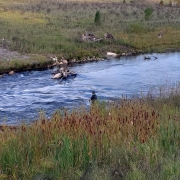Water Utilities’ Biggest Coronavirus Concern Is Staffing
Potential quarantines have utilities shoring up their contingency plans in case essential employees cannot work.

Water utilities are taking steps to ensure the safe operation of drinking water and sewage treatment plants in the midst of the coronavirus outbreak. Photo © J. Carl Ganter/Circle of Blue
By Brett Walton, Circle of Blue
Keeping the water flowing, even in times of emergency, requires certified workers to operate treatment plants. But operators cannot work when they are sick.
As the coronavirus spreads across the country, water utility leaders say that potential staffing shortages due to illness and quarantine are their biggest current concern in the Covid-19 pandemic.
That conclusion comes from interviews with water utility representatives and data from an American Water Works Association survey of several hundred water utilities about challenges they expect to face as a result of the outbreak, which has now touched every state.
Staffing concerns are especially acute for small utilities, which have fewer immediate resources to draw upon than their urban counterparts.
“We have a very small staff, only seven of us total. So it’s very important that we keep this infection away from the plant because we could easily have our staff be overwhelmed by it,” said Joey Witcher, plant manager at Sinclair Water Authority, during an AWWA webinar on March 20. Sinclair is a water wholesaler in central Georgia that serves about 30,000 people.
Those views are widely shared, according to the AWWA survey.
Out of more than 300 respondents to the survey, three-quarters said that they were concerned about staffing and employees missing work. No other option in the multiple-choice question — from supply chains to the ability to read meters and repair pipes — received more than 46 percent.
AWWA conducted the survey the week of March 10 and plans to conduct a second round of the survey later this week.
Many utilities are taking extra precautions to prevent Covid-19 outbreaks in the workplace. They have closed their facilities to the public. They are requiring office employees to work from home. They are reducing contact between operational staff.
Witcher said that Sinclair is splitting its four operators into teams of two that work alternating shifts. There is no overlap between the shifts so that operators have limited contact with other workers. The utility is also disinfecting the plant between shifts and minimizing interactions with delivery drivers, by placing a bin for packages at the entry gate.
As they prepare for the worst case, utilities are also revising their contingency plans.
Robert White is the executive director of the Alabama Rural Water Association, a trade group for small utilities.
White told Circle of Blue that his association and those that represent other states are compiling lists of volunteer operators who are certified to operate drinking water and wastewater plants and can assume control if regular staff are quarantined or unable to work. Volunteers are drawn from retired operators and from neighboring utilities that might have extra staff on hand.
“The water and wastewater industry is really close and works together,” White said.
Collaboration is also the plan in Coupeville and Langley, two towns on Whidbey Island, in Washington state. Randi Perry, the utilities supervisor in Langley, said that the towns are prepared to assist each other if necessary.
Witcher, at Sinclair Water Authority, said he can contact three former operators who still live in the area to run the treatment plant if his staff needs to be quarantined.
Because outsiders may need to take over operations, White is advising his members to update their system operating manual as quickly as they can. The manual is a blueprint for how to operate a treatment plant so that it produces drinking water that meets all state and federal standards. It’s also a guidebook for volunteer operators, who might not be familiar with a particular plant’s water chemistry and treatment process.
“If it’s a quality manual, there’s a short learning curve,” Wright said, adding that clear guidance is essential in these turbulent times.
“The past seven days have felt like six months,” he said.
Brett writes about agriculture, energy, infrastructure, and the politics and economics of water in the United States. He also writes the Federal Water Tap, Circle of Blue’s weekly digest of U.S. government water news. He is the winner of two Society of Environmental Journalists reporting awards, one of the top honors in American environmental journalism: first place for explanatory reporting for a series on septic system pollution in the United States(2016) and third place for beat reporting in a small market (2014). He received the Sierra Club’s Distinguished Service Award in 2018. Brett lives in Seattle, where he hikes the mountains and bakes pies. Contact Brett Walton











यदि जल प्रदूषित हो गया तो कॉरोना से भी गंभीर स्थिति हो जाएगी ।
अत: कृपया जल श्रौत में किसी भी तरह का प्रदूषण न डालें ।
डा टी के सिनहा, पर्यावरणविद ,वाराणसी, उत्तर प्रदेश, भारत ।